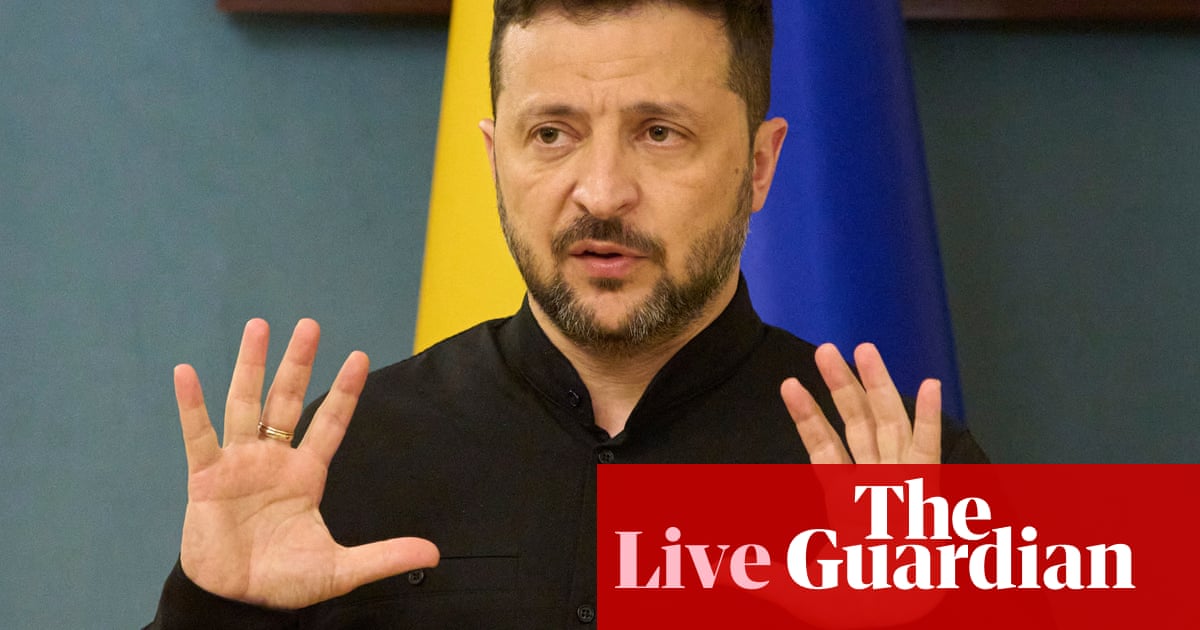The article covers the ongoing conflict between Ukraine and Russia, highlighting the recent discussions between US President Donald Trump and Russian President Vladimir Putin. It suggests a lack of consensus on a ceasefire and emphasizes Ukraine's position on the need for stronger sanctions against Russia.
Motivation Behind the Article
The primary aim of this article seems to be to inform the public about the latest diplomatic developments regarding the Ukraine-Russia conflict. By detailing the responses from both Trump and Putin, along with Zelenskyy's insistence on pressure against Russia, the article seeks to shape perceptions regarding the urgency of the situation and the differing stances of the involved parties.
Public Perception
The article is likely to create an image of a stalled diplomatic process, where Ukraine is portrayed as seeking peace but facing opposition from Russia. The insistence on sanctions may resonate with audiences who advocate for a stronger stance against aggressors. This narrative could elicit sympathy for Ukraine and a call to action from Western allies.
Information Omission
While the article provides insightful information on the discussions, it may downplay the complexities involved in the negotiations and the reasons behind Russia’s refusal to agree to a ceasefire. Such omissions could lead to a one-dimensional understanding of the conflict, focusing primarily on the immediate political maneuvers without delving into deeper historical or geopolitical contexts.
Manipulative Aspects
There is a potential for manipulation in the framing of the article. The call for stronger sanctions could be seen as a way to galvanize public sentiment against Russia, possibly leading to heightened tensions. The language used to describe the discussions between Trump and Putin may also influence readers' perceptions of their effectiveness or lack thereof.
Reliability of Information
The article appears to be based on credible sources, including statements from various political figures and government representatives. However, the selective focus on certain aspects of the discussions may skew the overall picture, making it essential for readers to seek additional sources for a comprehensive understanding of the situation.
Impact on Society and Economy
The implications of this article could affect public opinion, potentially increasing support for measures against Russia. Economically, heightened tensions and calls for sanctions could influence market perceptions, particularly in sectors reliant on international relations, such as energy and defense.
Target Audience
The article seems to be aimed at readers interested in international relations, particularly those who align with pro-Ukrainian sentiments. It may resonate more with audiences in Western countries that are supportive of Ukraine's sovereignty and the need for stronger diplomatic actions against Russia.
Market Influence
In the context of global markets, news regarding sanctions and military conflicts can lead to volatility in stock prices, particularly for companies involved in defense, energy, and technology sectors. Investors might react to perceived risks associated with the ongoing conflict.
Global Power Dynamics
This news piece holds significance in the broader context of global power dynamics, particularly between Western nations and Russia. The discussion around sanctions and diplomatic negotiations reflects ongoing geopolitical tensions that could shape future alliances and conflicts.
Use of AI in Writing
It is possible that AI tools were employed in the writing process, particularly for structuring the article and enhancing readability. However, the tone and framing appear to be crafted by human editors, as they reflect specific geopolitical narratives rather than purely data-driven content.
Conclusion on Reliability
While the article provides valuable insights into a complex situation, its reliability may be compromised by selective emphasis and potential manipulative framing. Readers should approach it with a critical eye and seek broader context to fully understand the implications of the Ukraine-Russia conflict.
